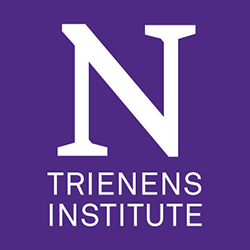PEPH Hybrid Event: Micro- and Nanoplastics in Marine Sediment: Detecting Particles and Assessing Impacts on Benthic Communities

When:
Thursday, March 28, 2024
11:00 AM - 12:00 PM CT
Where: Mudd Hall ( formerly Seeley G. Mudd Library), Room 3514, 2233 Tech Drive, Evanston, IL 60208 map it
Audience: Faculty/Staff - Student - Post Docs/Docs - Graduate Students
Contact:
Mike McMahon
mike.mcmahon@northwestern.edu
Group: Trienens Institute
Category: Lectures & Meetings, Environment & Sustainability
Description:
The Program on Plastics, Ecosystems, and Public Health (PEPH) will host Marissa Giroux, Research Biologist, U.S. Environmental Protection Agency, Office of Research and Development, Atlantic Coastal Environmental Sciences Division for a hybrid (in-person and virtual) event. Registration required, lunch provided.
Registration: In-person attendance / Virtual attendance
What: "Micro- and Nanoplastics in Marine Sediment: Detecting Particles and Assessing Impacts on Benthic Communities"
Who: Marissa Giroux is a research biologist for the U.S. Environmental Protection Agency in its Office of Research and Development, Atlantic Coastal Environmental Sciences Division.
When: Thursday, March 28 | 11:00 - 12:00pm
Where: Mudd Hall | Room 3514 | Zoom
Abstract: Plastic particles are now found ubiquitously in the environment. As the abundance of plastic increases in marine systems, the magnitude of adverse biological and ecological effects of plastics of various size classes (macro-, micro-, nano-) need to be evaluated for potential risks. Marine sediments act as a sink for many contaminants, including microplastics (MPs) and nanoplastics (NPs), and are rich habitats for benthic invertebrate and microbial communities which are fundamental to the health of marine food webs. However, there are many technical challenges in measuring MPs and NPs in environmental samples. I will present our methods for extracting, identifying, and quantifying MPs, as well as address the limitations that still exist in measuring plastic particles in environmental samples. NPs are of growing concern because they may be able to pass through biological membranes more effectively than larger microscale particles and enter marine systems primarily through fragmentation of larger plastics present in the environment. However, less is known about the effects of nanoplastics on community diversity and ecosystem structure. Identifying benthic organisms is a time-consuming process, but molecular methods, such as metabarcoding, utilize high-throughput sequencing to assess community diversity and structure from environmental DNA and RNA and are quicker than conventional methods. I will discuss the utility of environmental RNA metabarcoding for understanding the impacts of NPs on benthic invertebrate communities.
Speaker Bio: Dr. Marissa Giroux is a Research Biologist at the U.S. Environmental Protection Agency’s Atlantic Coastal Environmental Sciences Division located in Narragansett, RI. She received her B.S. in Marine Science from the University of Maine and her Ph.D. in Environmental Toxicology from University of California- Riverside where she earned the prestigious Delta Science Fellowship through California Sea Grant. Prior to becoming a federal scientist, Dr. Giroux was an ORISE Postdoctoral Research Fellow at the U.S. EPA. During this time, she developed molecular methods to assess the impacts of emerging contaminants on communities of marine organisms. Her main research interests focus on using molecular approaches to understand the sublethal impacts of pesticides, plastic particles, and other contaminants of emerging concern on aquatic organisms and connecting them with effects at the community level.
This conversation is part of the seminar series hosted by the Program on Plastics, Ecosystems, and Public Health at the Paula M. Trienens Institute for Sustainability and Energy. Co-hosted by the Northwestern Department of Environmental Science.
Questions? Contact mike.mcmahon@northwestern.edu